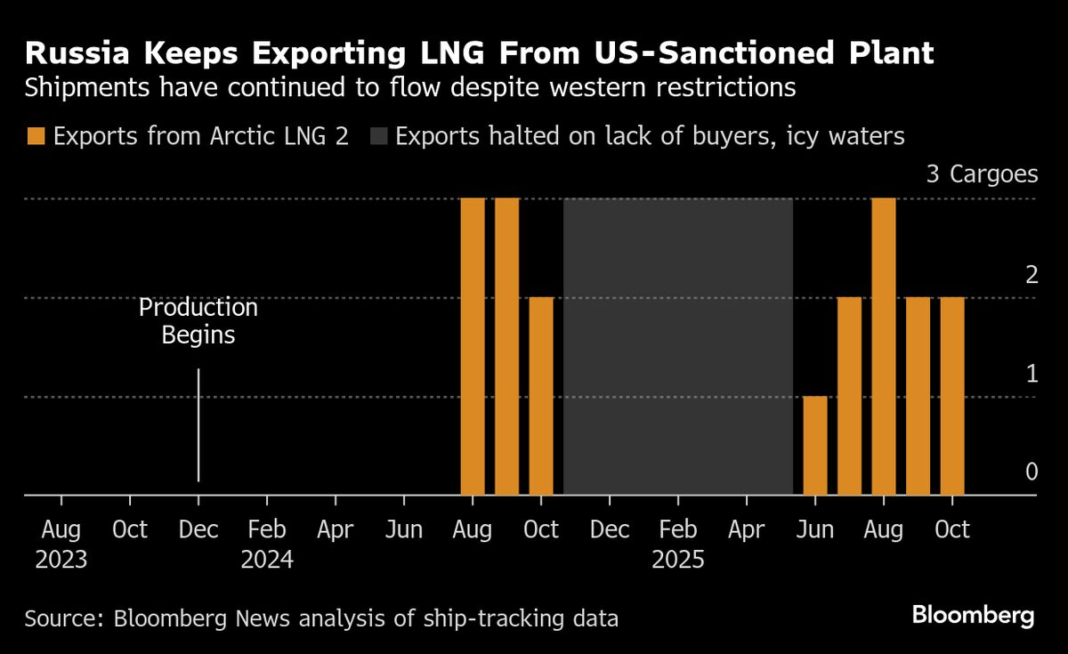The Arctic Gamble: LNG Shipments Amid Sanctions
In the frigid heart of Russia’s Arctic region, a liquefied natural gas (LNG) plant is stirring controversy by continuing its operations despite U.S. sanctions. This bold move not only highlights Russia’s determination to assert its energy dominance but also throws a spotlight on the geopolitical chess game between Moscow and Washington, particularly during President Donald Trump’s administration. Let’s delve into the implications, motivations, and global consequences surrounding this intriguing development.
Understanding the Context of Sanctions
The sanctions imposed by the U.S. on Russia aim to curtail the nation’s economic power, particularly its energy sector, which is a vital component of its economy. These measures emerged in response to various geopolitical conflicts, including Russia’s actions in Ukraine and its alleged interference in U.S. elections. However, the sanctions do not universally prevent all activity, allowing some areas of the energy sector to maintain operations under certain conditions.
The LNG Plant: A Strategic Asset
The liquefied natural gas facility in question represents not only a technological achievement but also a key strategic asset for Russia. With Arctic reserves rich in natural gas, this plant enables Russia to tap into an underutilized resource while exporting fuel to markets eager for alternatives to Middle Eastern oil and other European sources.
Moscow’s Quest for Energy Independence
For Russia, circumventing sanctions is more than just defiance; it’s about maintaining energy independence and bolstering its economic stability. In recent years, Moscow has focused on diversifying its trade partners and exploring alternate routes to global markets. By continuing LNG shipments, Russia seeks to solidify itself as a reliable energy provider, positioning itself as an essential player in the global energy landscape.
The Dance with Global Markets
As Russian LNG flows into the international market, the dynamics shift. Countries in Asia, particularly China, are keen to establish a steady supply of natural gas to fuel their rapidly expanding economies. By engaging in trade with Russia, they also present a counterbalance to U.S. energy dominance. This makes the geopolitical stakes even higher, as the U.S. works to maintain its influence while competing against Russian offerings.
Testing the Waters: Trump Administration’s Response
During Trump’s presidency, there was a keen focus on energy independence for the United States. The administration emphasized various strategies to bolster domestic production while keenly monitoring international developments, particularly concerning competitors like Russia. The continued operation of this Russian LNG facility allows the Kremlin to gauge the effectiveness of U.S. sanctions: can it continue to flourish despite them?
Environmental and Safety Concerns
Beyond geopolitics, this ongoing operation raises environmental and safety issues. The Arctic region is an ecologically sensitive area, home to unique wildlife and fragile ecosystems. Critics of the project often express concerns about the long-term impact of LNG production on these environments, which could resonate with international audiences, adding pressure on Russia from a different angle.
The Future of Arctic Energy
The continued operation of the LNG plant brings the future of Arctic energy production into sharp focus. As climate change opens new shipping routes and makes resource extraction more feasible, the region could see increased global interest. However, this will likely intensify international debates surrounding environmental protection, indigenous rights, and sustainable practices.
Conclusion: The Unfolding Narrative
The developments surrounding the LNG plant in Russia’s Arctic region are emblematic of broader geopolitical themes. They reflect the complexities of modern energy politics, where economic interests often clash with regulatory frameworks and environmental considerations. While the U.S. and its allies attempt to impose restrictions, Russia’s perseverance indicates that the Arctic will continue to play a crucial role in global energy discussions for years to come.



